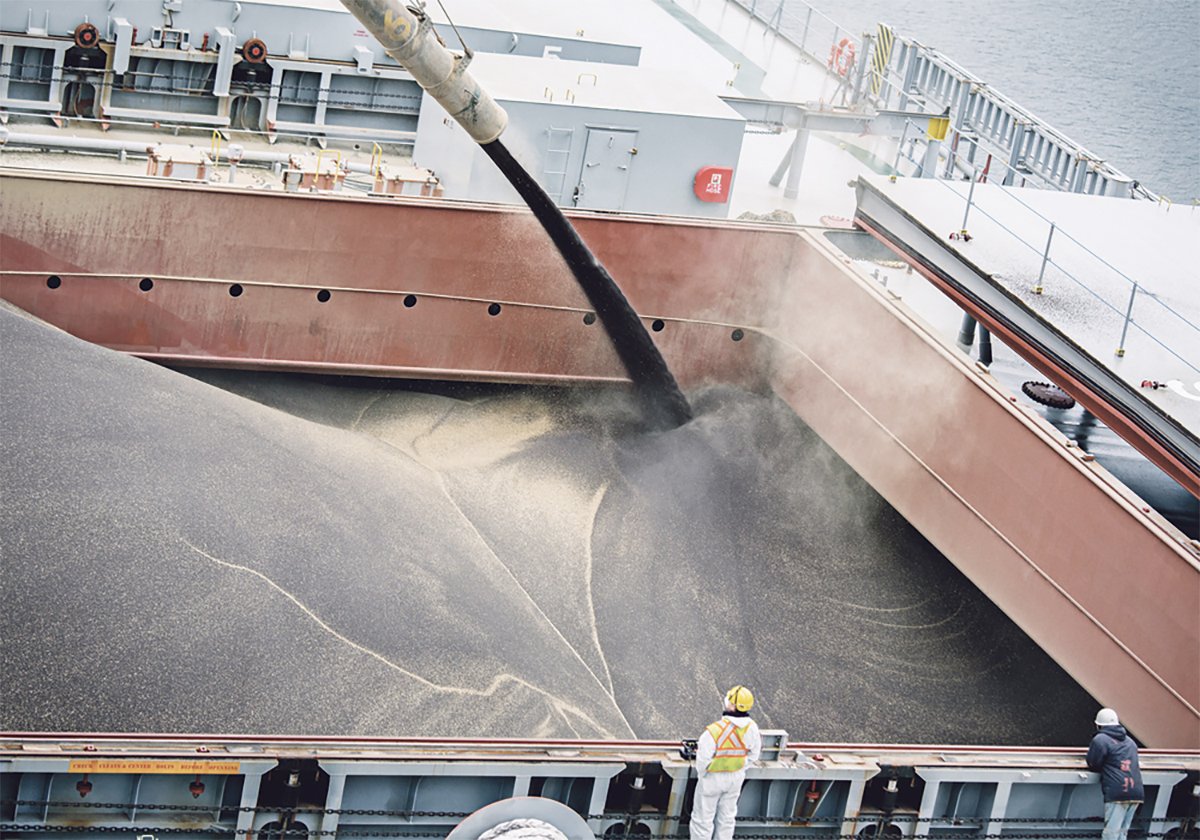Is Mexico a golden opportunity for Canadian farmers and food producers or a nightmare market where they will be cheated, drowned by ever-changing regulations and maybe kidnapped and held hostage?
It could be both, neither or a bit of each, a University of Manitoba Transport Institute conference heard.
Perhaps the nightmare scenario makes the golden potential possible. Without all the hassles, dangers and confusions, Mexico might be a market already saturated with competing goods.
“It’s a country that hasn’t had everything moving forward at the same speed, but there are some things that they have really embraced and we can (use them to) our advantage,” said institute head Barry Prentice.
Read Also

Exports off to a slow start after last year’s torrid pace
Canadian grain, oilseed and pulse exports are off to a slow start, but there are some bright spots, according to the Canadian Grain Commission’s most recent weekly export data report.
Many Canadians laugh about or ignore Mexico because of its image as a backward land, but stereotypes are bad for business.
“Throw away your old ideas of Mexico as being a land of siestas and adobe houses and burros,” he said.
“It’s really changed into a modern economy and there are opportunities for us.”
During the day-long Fields on Wheels conference Nov. 21, speakers outlined the good, the bad and the ugly of exporting grain and food products to Mexico. Often the speakers provided a bit of all three.
Edward Zilli, export manager of Toronto sausage maker Santa Maria Foods, said his company is now making money selling its products in Mexico, but it has been a long, difficult and costly process.
His company had difficulties finding Mexican retailers and distributors to move its product, so it set up its own distribution company in the country.
However, that proved more difficult than selling sausages in Canada. For instance, the company found it could sell only small pallet-sized loads of product to Mexican grocery stores, so it needed a fleet of small trucks.
However, the one-man crews it hired for the trucks didn’t work out well. The trucks had a habit of disappearing when the driver went inside with the goods. The company had to use two man crews: one to deliver the goods and one to guard the truck.
It also found it needed protection inside the stores from agents of competing food producers who would hide, shove to the back of the cooler or throw out its products.
After years in the market, Santa Maria knows how to do business in Mexico, Zilli said. Other Canadian companies can find opportunities there, but it might not be such a painful experience if they avoid his company’s mistakes.
Mexico-based food importer and producer Mark Magdule focused on the positives.
He said companies hoping to export to Mexico need to find a good Mexican partner to avoid the many problems that can occur when dealing with a foreign culture and business system.
He said his company has thrived and business is booming in Mexico so Canadian companies should take it seriously.
However, he admitted that Mexico can seem “crazy,” and the economic and safety risks are real.
Almost as an aside, he noted that his brother-in-law had been kidnapped and held for ransom for 27 days in the 1990s but that he still loved Mexico.
Sales manager Tom Westerveld of Ontario apple producer Martin’s Family Fruit Farm Ltd. said his company had done well exporting fruit to Mexico. However, he told Canadians to realize that in Mexico personal relationships are formed first and business follows later, a reversal of the usual Canadian-American practice.
He encouraged hopeful Canadian food exporters to take the time to meet with Mexican contacts, have lunch or supper with them, meet each other’s families and discover with whom they will be doing business.
As well, he told Canadians to take Mexico’s stringent paperwork requirements seriously.
“If they want it on pink paper, put it on pink paper,” he said.
“There is no margin for error.”

















